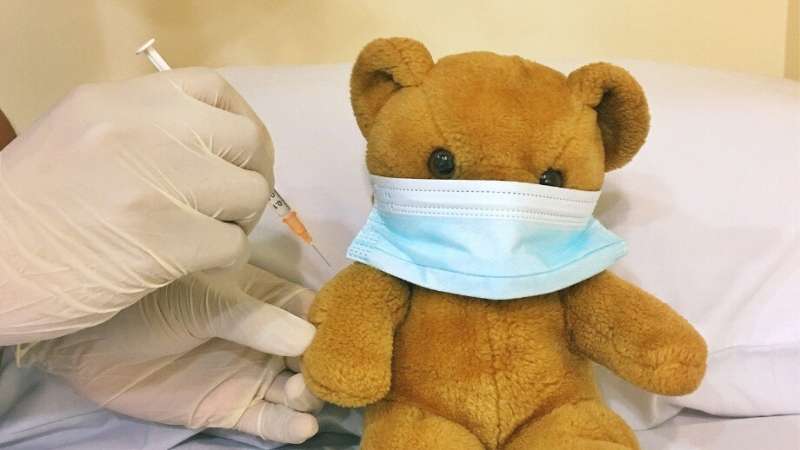
Almost four-in-five Australian parents and carers say they are likely to get their children vaccinated against COVID-19 once vaccinations are available, new analysis from The Australian National University (ANU) shows.
The analysis also provides the first overview of the socioeconomic factors of Australians who have already been or are keen to get vaccinated against COVID-19, showing language and education are major barriers to uptake.
The survey of more than 3,000 adults found 42.5 percent of parents and carers would definitely get their children vaccinated once a safe and effective vaccine was made available to them. In addition, 36.3 percent of parents said they were likely to get their children vaccinated.
However, almost one-in-10 (9.8 percent) of parents and carers said they definitely wouldn’t get their children vaccinated, while 11.4 percent said they probably wouldn’t.
Professor Nicholas Biddle said the findings provided vital insights about vaccine willingness among Australian parents and carers for governments and health authorities to take into account when planning any future vaccine roll-out to children.
“In recent weeks and months we have seen lots of public commentary, including concerns, about making sure children are vaccinated against COVID-19,” Professor Biddle said.
“In particular, people have been worried about long COVID among children who get the virus or the role of children in spreading the virus among households and in the community.
“These findings show the vast majority of Australians are ready to make sure their children are protected from COVID as soon as vaccines are available to them.”
The new analysis is based on the nation’s largest longitudinal study on COVID-19 in Australia, led by the ANU Centre for Social Research and Methods. The study has been tracking Australians’ attitudes to vaccines since August 2020 and the broader impact of COVID-19 since April 2020.
The latest findings show which Australians are most likely to have already been vaccinated or who are willing to.
“We found vaccination rates are lower for Australians who have relatively low levels of education, those who speak a language other than English, those who live outside of NSW and those who have low household income,” Professor Biddle said.
“In particular, those who speak a language other than English at home were significantly and substantially less likely to have been vaccinated than those who speak English only.
“However, there are no significant differences in the likelihood of being vaccinated between those born in Australia and those born overseas, or between those born in a non-English speaking country and those born in an English-speaking country.
“This suggests that it is a language a person speaks rather than where they are born that determines the likelihood of being vaccinated.”
Education levels are another significant indication of vaccine uptake, the analysis has found.
“Those with a degree, and particularly those with a postgraduate degree, were significantly more likely to have been vaccinated than those who had completed Year 12 only,” Professor Biddle said.
“If the relative vaccination rates remain once Australia reaches the 70–80 percent national vaccination rates, then non-English speaking Australians and those with relatively low levels of education are going to be at substantially increased risk of serious infection and mortality from COVID-19.”
The latest analysis shows that vaccine hesitancy is at an all-time low in Australia, with the number of people saying they definitely wouldn’t or are unlikely to get vaccinated against COVID-19 dropping to 14.6 percent among the unvaccinated population, compared to 17.1 percent in April 2021.
The highest percentage was in January 2021 when 21.7 percent of Australian adults said they definitely would not or were unlikely to get vaccinated.
Professor Biddle said: “Not only are far more people getting vaccinated, but the unvaccinated appear to be less hesitant than they were at the start of the year.”
Source: Read Full Article
